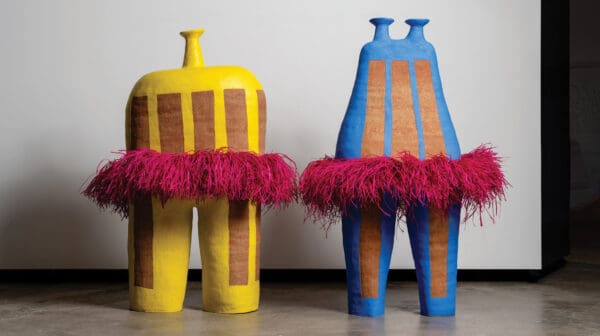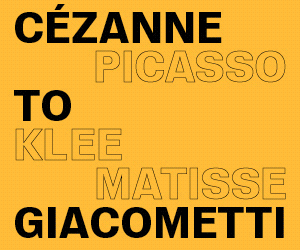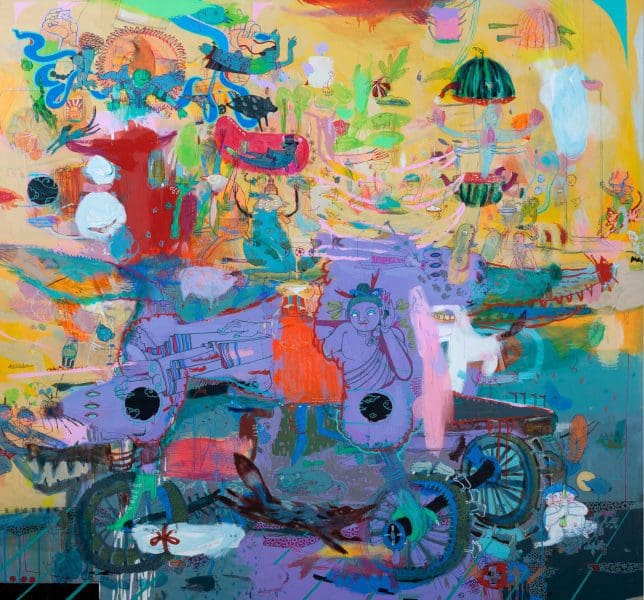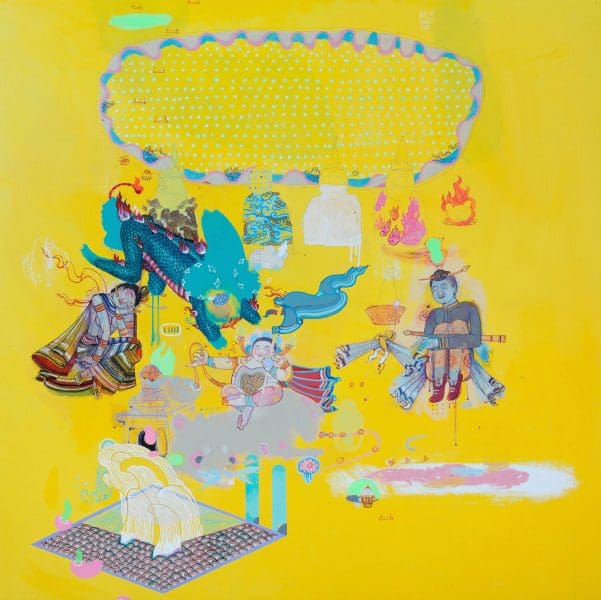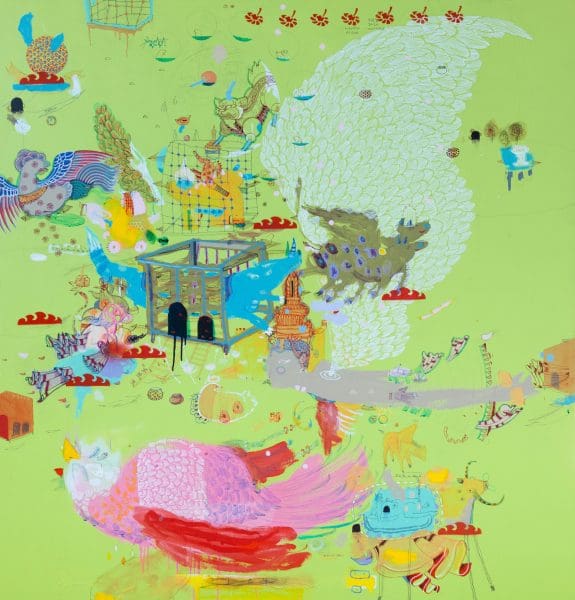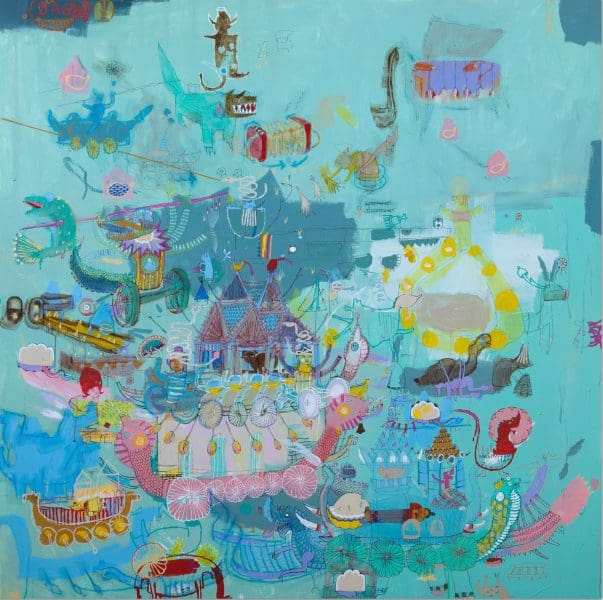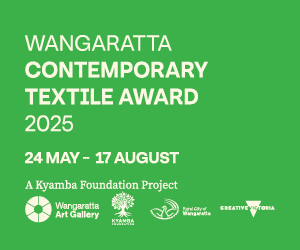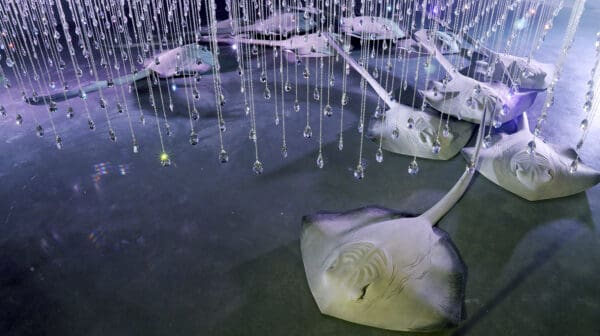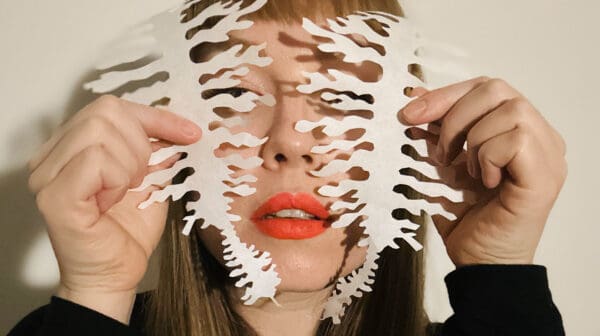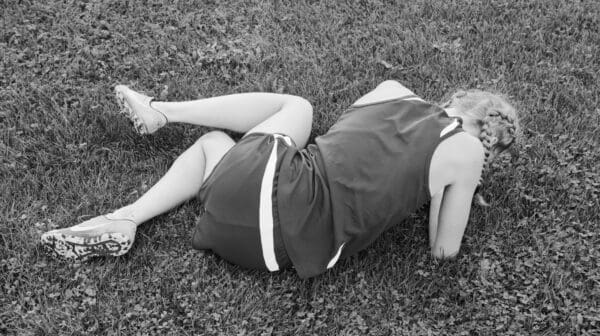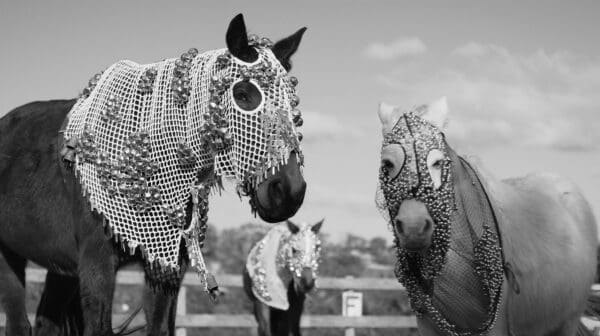The conceptual backbone of Bundit Puangthong’s exhibition is the tension between holding onto the past and letting go. Two decades after emigrating to Australia from Thailand, the artist has developed a suite of paintings that meditate upon his childhood, family and place of origin.
Puangthong’s desire to look to the past is, in his opinion, a signifier that he has finally come to feel at home in his adopted country. “When I first moved to Australia, everything was so new—the language and culture, the scenery, people and the art. My previous work was often an expression of me decoding and making sense of the new world around me,” says the artist, who completed a Master of Visual Arts at the Victorian College of the Arts in 2005. “Twenty years on, I am much more at home here and no longer need to process things in the same way. As this element of my work has fallen away, the Thai elements appear much more present.”
Puangthong’s paintings offer a sense of his inner consciousness. His canvases largely feature bright, dream-like figures overlapping with amorphous lines and shapes against flat monochrome backdrops. The compositions are often cryptic, an intermingling of figurative and abstract shapes.
For the artist, his practice also offers him a meditative outlet, as is evinced by his painting ritual—rising early to paint in the dark hours of the morning. “In the process of painting this work, I was recording and honouring my family history and story, but not with the intention of keeping them for myself, but instead letting them go.” The handing over of his personal narrative to viewers, says Puangthong, is a necessary step in the course of letting go.
What Water Will Bring
Bundit Puangthong
Edwina Corlette Gallery
19 June – 15 July
Edwina Corlette Gallery is currently open with physical distancing guidelines in mind. The exhibition What Water Will Bring can also be viewed online here.
This article was originally published in the May/June 2020 print edition of Art Guide Australia.
